The right block in figure moces at a speed towards the left block placed in equilibrium. All the surfaces are smooth and all the collisions are elastic. Find the time period motion. Neglect the width of the blocks.
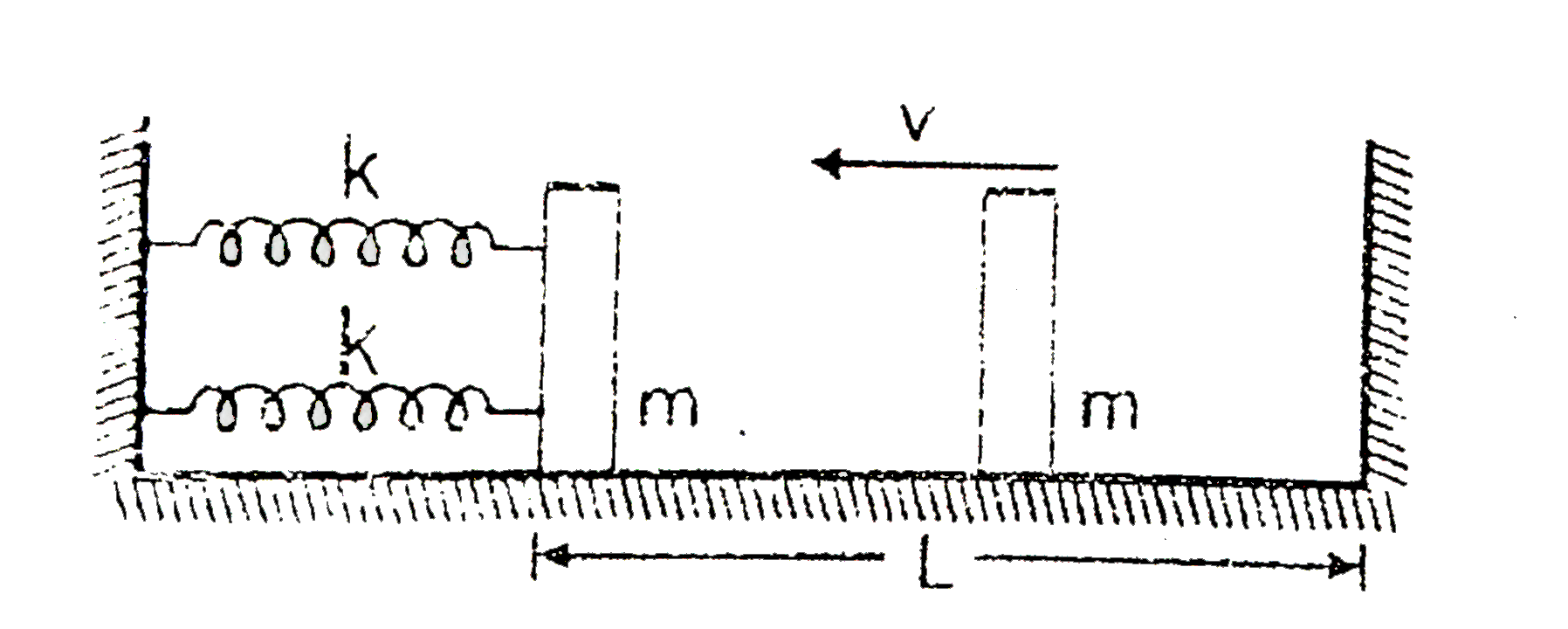
The correct Answer is:A
since all collision are elestic and total energy is conserved
Time period of motion of right block is .
Time period of motion of left block is
So. Total time period
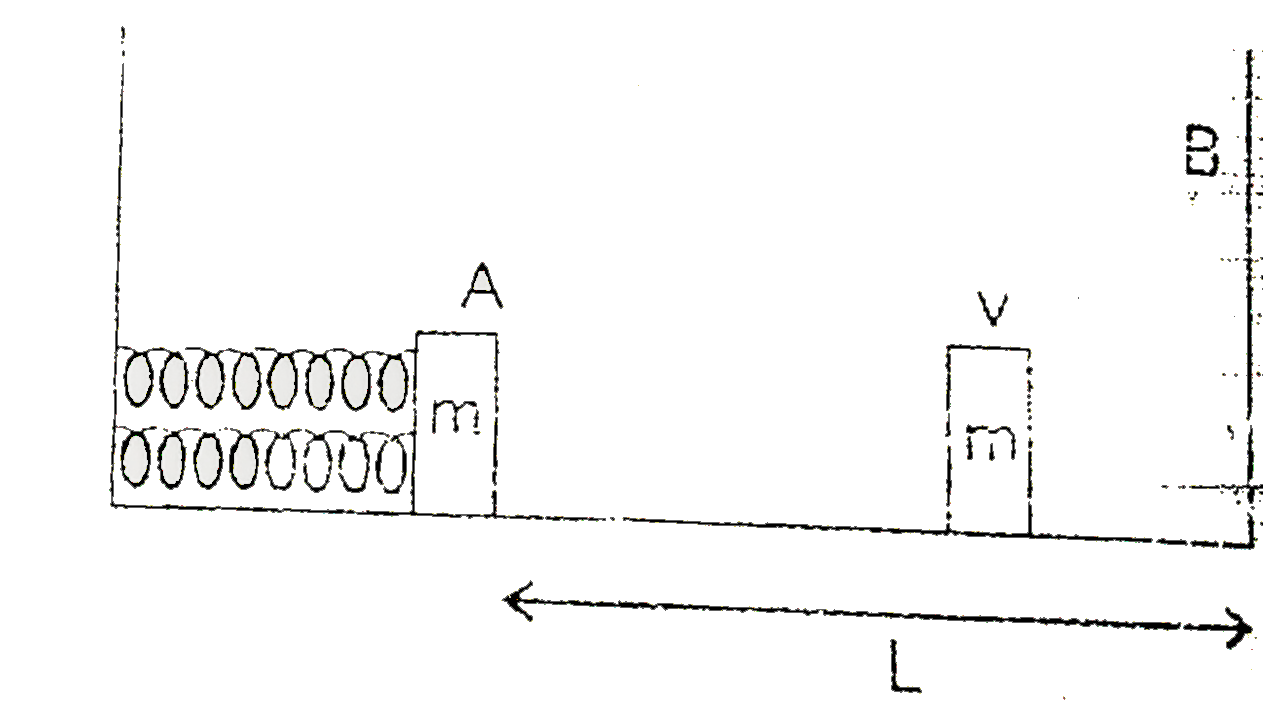
Topper's Solved these Questions
- SIMPLE HARMONIC MOTION BOOK - RESONANCECHAPTER - SIMPLE HARMONIC MOTION EXERCISE - Exercise- 2, PART - II
1 Videos
- SIMPLE HARMONIC MOTION BOOK - RESONANCECHAPTER - SIMPLE HARMONIC MOTION EXERCISE - Exercise- 2, PART - III
12 Videos
- SIMPLE HARMONIC MOTION BOOK - RESONANCECHAPTER - SIMPLE HARMONIC MOTION EXERCISE - Exercise- 1, PART - II
37 Videos
- SEMICONDUCTORSBOOK - RESONANCECHAPTER - SEMICONDUCTORSEXERCISE - Exercise 3
88 Videos
- TEST PAPERSBOOK - RESONANCECHAPTER - TEST PAPERSEXERCISE - FST-3
30 Videos
Similar Questions
The surface shown in the diagram are smooth and all collisions are elastic. Find the time period of the periodic motion.
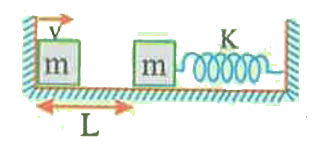
View SolutionThe left block in figure moves at a speed v towards the right block placed in equilibrium. All collilsions to take place are elastic and the surfaces are frictionless. Show that motion of the two blocks are periodic. Find the timepoerid of these periodic motions. Neglect the widths of the blocks.

View Solution
Knowledge Check
A block of mass m moves with a speed v towards the right block which is in equilibrium with a spring attached to rigid wall. If the surface is frictionless and collisions are elastic, the frequency of collisions between the masses will be:
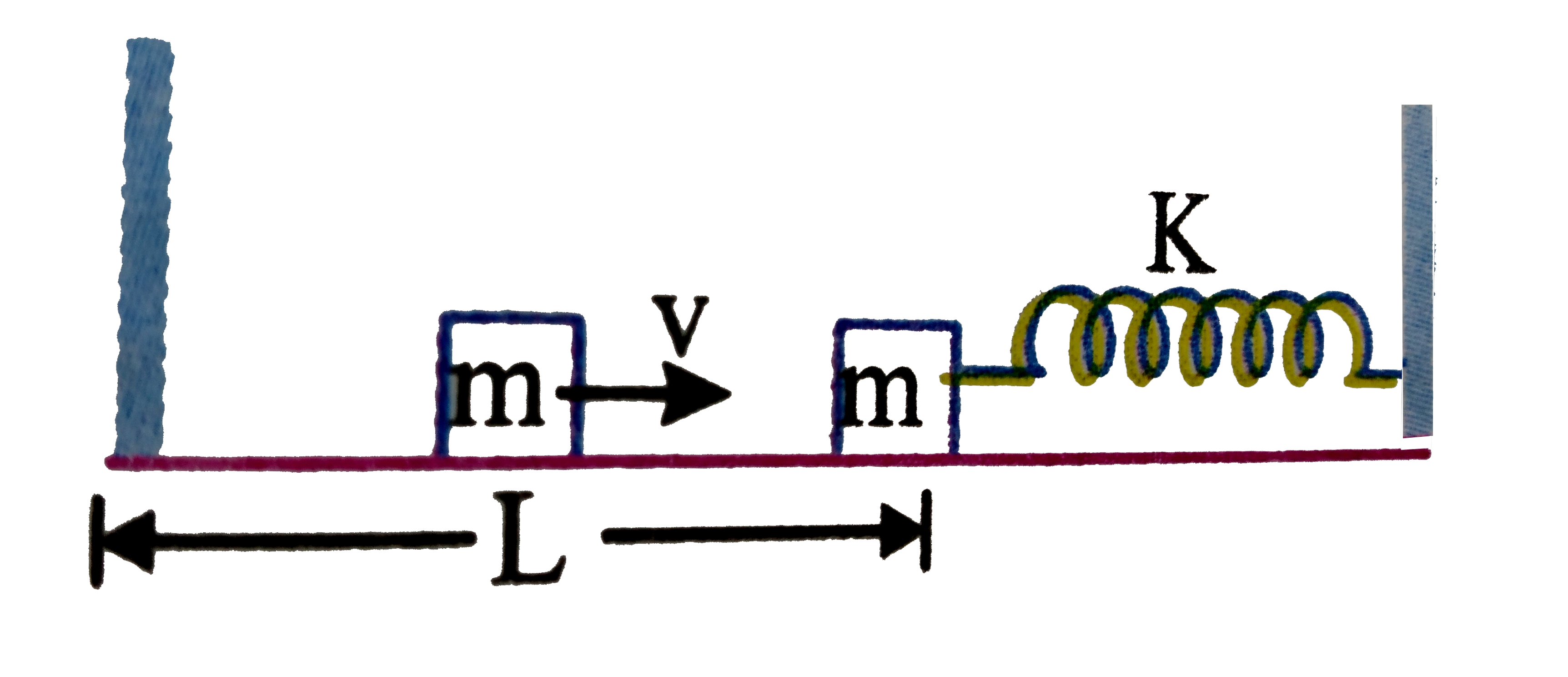 Av2L+1π√KmB2[v2L+12π√Km]C2[2Lv+π√mK]Dv2l+1π√mK
Av2L+1π√KmB2[v2L+12π√Km]C2[2Lv+π√mK]Dv2l+1π√mKIn the situation shown in figure the magnitude of total external force acting on the block a is (all the surfaces are smooth)
 A21 NB14 NC7 NDZero
A21 NB14 NC7 NDZeroThe system of block and wedges all of same mass shown in the figure is released from rest. All surfaces are smooth. Then:
 AThe speed of block A when it falls 50cm is 2√2m/sBThe speed of block B when A falls 50cm is 4m/sCThe speed of block B when A falls 50cm is √10m/sDThe speed of block C when A falls 50cm is √2m/s
AThe speed of block A when it falls 50cm is 2√2m/sBThe speed of block B when A falls 50cm is 4m/sCThe speed of block B when A falls 50cm is √10m/sDThe speed of block C when A falls 50cm is √2m/s
Find the acceleration of each block in the situation shown in the figure. All the surface are smooth and the pulleys and sttings are light.
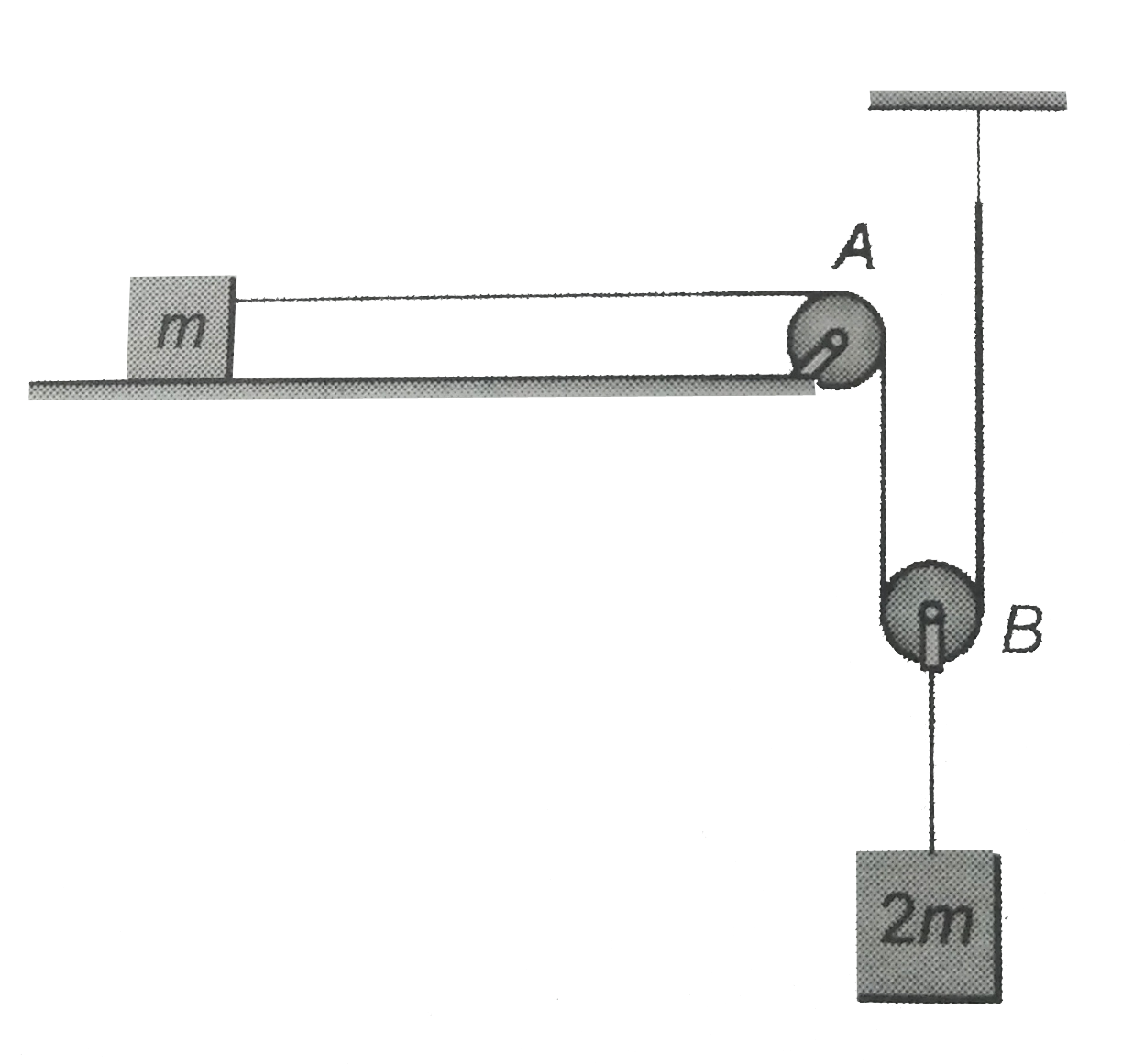
View SolutionAll surfaces are smooth in the adjoining figure. Find F such that block remains stationary with respect to wedge.
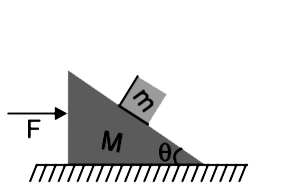
View SolutionA block is released from point A as shown in figure .All surfaces are smooth and there is no loss of mechnical energy anywhere. Find the time period of oscillation of block.
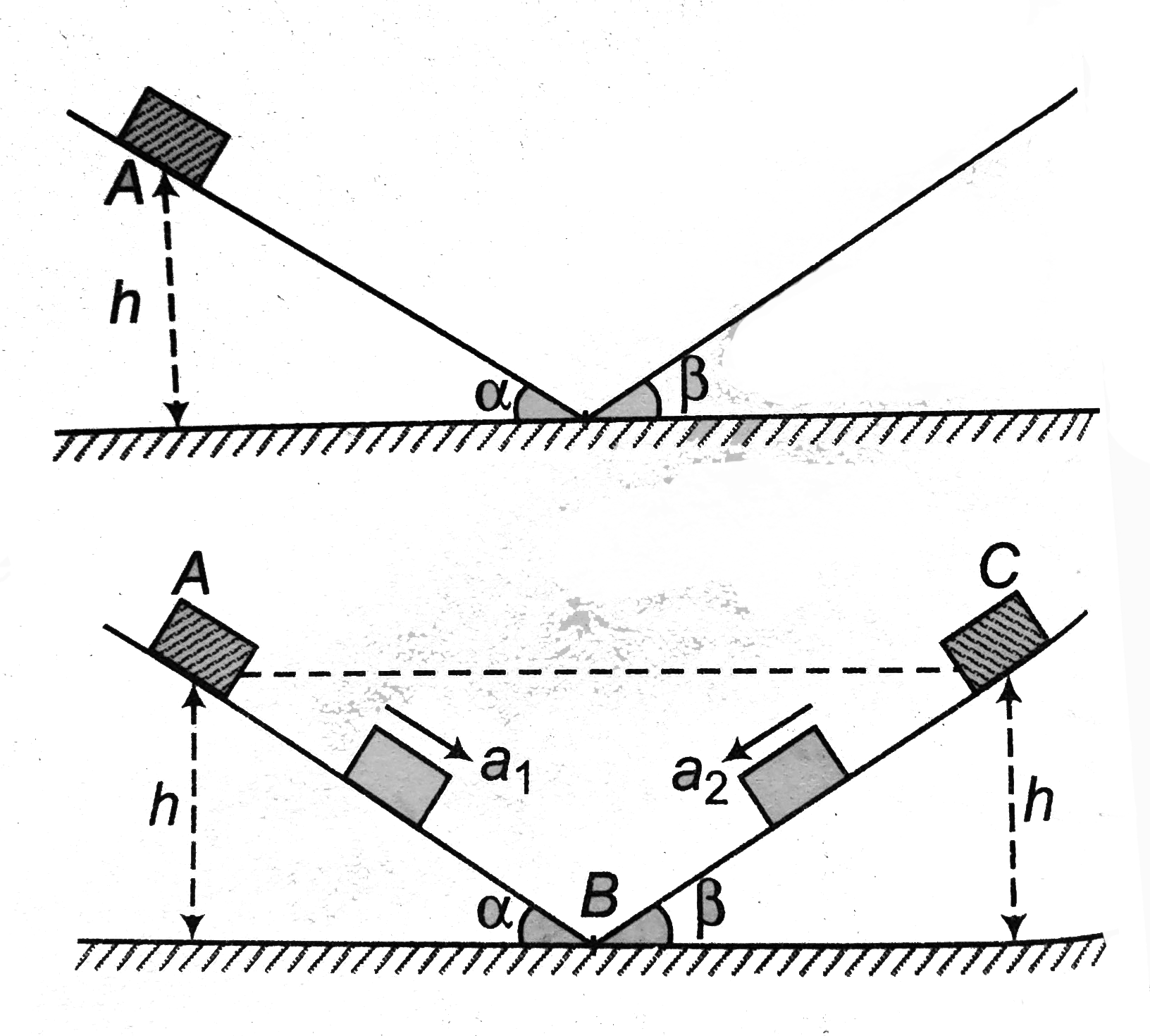
View SolutionAll surface are smooth in following figure. Find F, such that block remain stationary with respect to wedge.
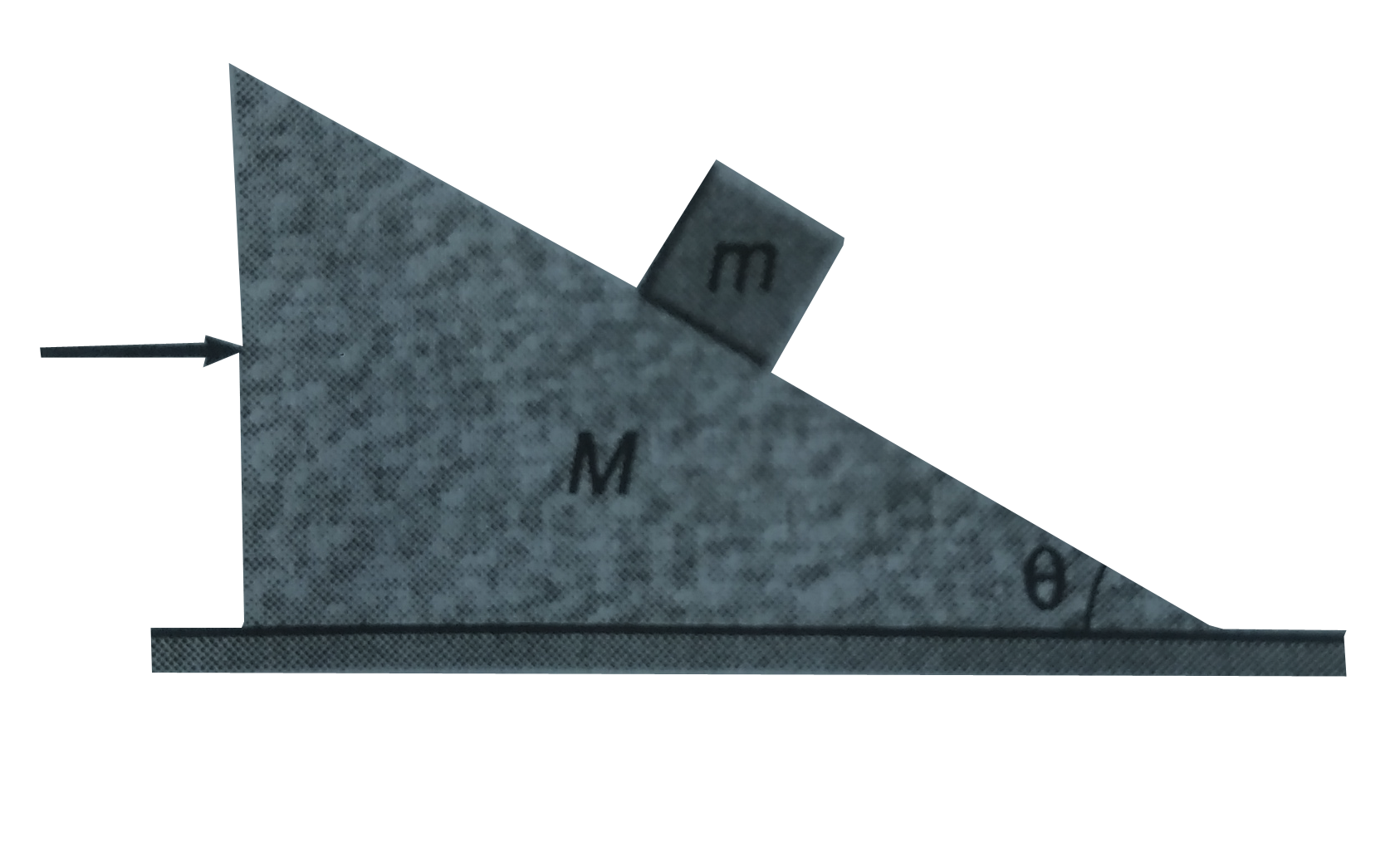
View SolutionInfinite blocks each of mass M are placed along a straight line with a distance d between each of them. At t = 0 the leftmost block is given a velocity V towards right. The coefficient of frication between any block and the surface is μ and all collisions are elastic. Let the total number of collisions be N then N is

View Solution
